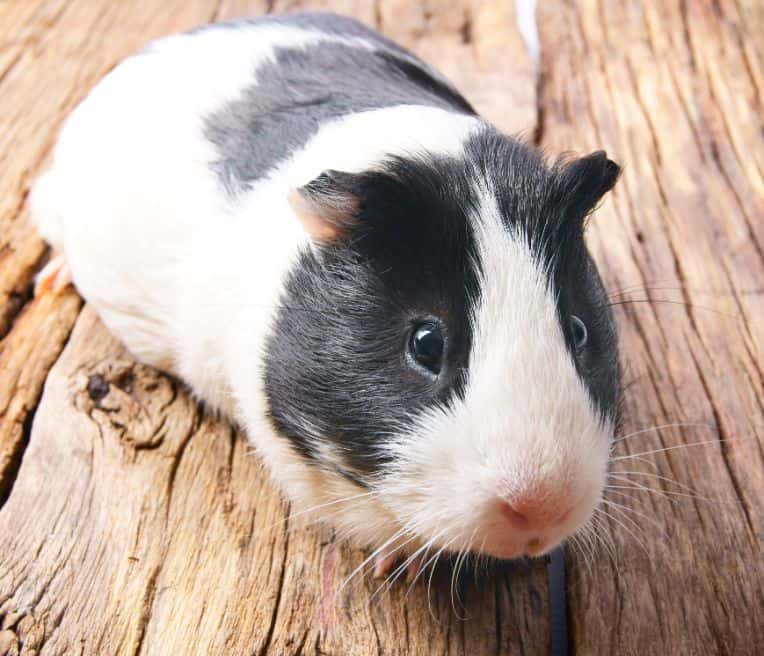Guinea pigs, also known as cavies, are popular pets due to their adorable looks and charming personalities. I often receive questions about their reproductive capabilities.
One common question I hear is, “Can guinea pigs get pregnant without a male?” The answer is no. In this blog post, we will explore the topic of guinea pig reproduction and debunk common misconceptions.

Understanding Guinea Pig Reproduction
Guinea pigs are mammals and reproduce sexually, meaning they need a male to fertilize the female’s eggs for reproduction to occur. In the wild, guinea pigs are social animals that live in groups and mate freely.
However, as pets, they require responsible breeding practices to ensure their health and well-being.
How Guinea Pigs Reproduce Naturally
The reproductive cycle of a female guinea pig starts when she reaches sexual maturity, which is around 2-3 months of age. Once she is ready to mate, she will indicate her fertility by presenting her hindquarters and making a low rumbling sound.
The male guinea pig will then mount her and initiate copulation, which typically lasts for a few seconds.
The Role of Males in Guinea Pig Reproduction
Male guinea pigs, also known as boars, play a crucial role in the reproduction process. They produce sperm, which fertilizes the female’s eggs, resulting in the formation of embryos.
The embryos then develop into baby guinea pigs, also known as pups, which are born after a gestation period of 59 to 72 days.
Why Female Guinea Pigs Need Males to Get Pregnant
Female guinea pigs, also known as sows, cannot reproduce without a male guinea pig. This is because they need sperm from a male to fertilize their eggs.
Unlike some species of reptiles and fish, guinea pigs cannot reproduce asexually. Therefore, to produce offspring, a male and female guinea pig must mate.
Debunking Common Misconceptions
There are many misconceptions about guinea pig reproduction, which can lead to misinformation and misunderstandings. Let’s explore some of the most common myths.
Myth: Female Guinea Pigs Can Reproduce Asexually
This is a common myth that is not true. Guinea pigs cannot reproduce asexually, meaning they cannot produce offspring without a male guinea fertilizing their eggs.
Why this Myth is False
This myth may have originated from the fact that some species of reptiles and fish can reproduce asexually. However, it is not true for guinea pigs, which are mammals.
Exploring Alternative Options for Baby Guinea Pigs
While it is not possible for female guinea pigs to reproduce without a male guinea pig, there are alternative options available for those looking to adopt baby guinea pigs.
Adopting Baby Guinea Pigs from Shelters or Rescues
There are many animal shelters and rescues that have a variety of guinea pigs available for adoption. Adopting from a shelter or rescue not only helps provide a loving home for a guinea pig in need but also helps to reduce the number of unwanted guinea pigs in the pet trade.
Breeding Guinea Pigs Responsibly
For those interested in breeding guinea pigs, it is essential to do so responsibly.
This means ensuring that the breeding pair is healthy and genetically diverse, and the resulting offspring are well-cared for and given proper veterinary care.
The Importance of Working with Reputable Breeders
If you are interested in purchasing a guinea pig from a breeder, it is important to work with a reputable breeder who follows responsible breeding practices.
This ensures that the guinea pig you adopt is healthy and has been cared for appropriately.
Caring for Pregnant Guinea Pigs
If you have a pregnant guinea pig, it is important to provide her with proper care to ensure the health and well-being of both the mother and her pups.
Signs of Pregnancy in Guinea Pigs
Some signs that your guinea pig may be pregnant include weight gain, increased appetite, and a rounder belly. However, it is essential to confirm pregnancy with a veterinarian.
Nutritional Needs during Pregnancy
Pregnant guinea pigs require a diet that is high in protein, calcium, and vitamin C. It is essential to provide them with fresh vegetables and fruits, hay, and a small amount of pellets.
Preparing for the Arrival of Baby Guinea Pigs
Before the arrival of the baby guinea pigs, ensure that their enclosure is clean and has enough space for them to move around. Provide a nesting box with soft bedding for the mother to give birth and care for her pups.
Conclusion
Understanding guinea pig reproduction is essential for responsible pet ownership. While female guinea pigs cannot reproduce without a male guinea pig, it is important to explore alternative options for those interested in adopting baby guinea pigs.
Responsible breeding practices and proper care during pregnancy are crucial for the health and well-being of guinea pigs. By debunking common misconceptions and providing accurate information, we can ensure that guinea pigs receive the care they deserve.
- How Long Do American Eskimo Dogs Live? Important Factors and Care Tips - September 29, 2023
- Do American Bulldogs Need Grooming? Essential Tips and Care Guidelines - September 29, 2023
- Do Bengal Cats Enjoy Playing? Essential Tips for Keeping Them Active - September 29, 2023